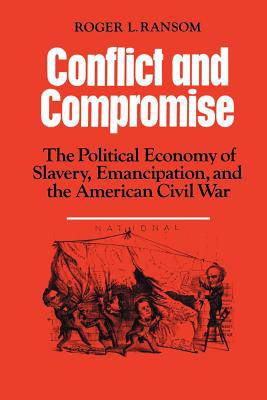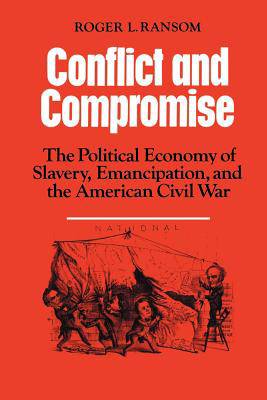
- Afhalen na 1 uur in een winkel met voorraad
- Gratis thuislevering in België vanaf € 30
- Ruim aanbod met 7 miljoen producten
- Afhalen na 1 uur in een winkel met voorraad
- Gratis thuislevering in België vanaf € 30
- Ruim aanbod met 7 miljoen producten
Zoeken
Conflict and Compromise
The Political Economy of Slavery, Emancipation and the American Civil War
Roger L Ransom
Paperback | Engels
€ 47,95
+ 95 punten
Omschrijving
No series of events had a more dramatic impact on the course of American history than the Civil War and the emancipation of four million slaves. This book examines the economic and political factors that led to the attempt by Southerners to dissolve the Union in 1860 and the equally determined effort of Northerners to preserve it. A central thesis of the book is that slavery not only "caused" the Civil War by producing tensions that could not be resolved by compromise; the slave system also played a crucial role in the outcome of the war by crippling the Southern war effort at the same time that emancipation became a unifying cause for the North. The author looks at a century of sectional conflict over slavery and reveals a great irony of the American Civil War. The South suffered a bitter defeat in a war to protect the institution of slavery, even though it is likely that the Constitution of the United States offered the best protection for a slave system. And, despite the abolition of slavery in the United States, equality for Black Americans remained a distant dream.
Specificaties
Betrokkenen
- Auteur(s):
- Uitgeverij:
Inhoud
- Aantal bladzijden:
- 336
- Taal:
- Engels
Eigenschappen
- Productcode (EAN):
- 9780521311670
- Verschijningsdatum:
- 29/09/1989
- Uitvoering:
- Paperback
- Formaat:
- Trade paperback (VS)
- Afmetingen:
- 149 mm x 227 mm
- Gewicht:
- 462 g

Alleen bij Standaard Boekhandel
+ 95 punten op je klantenkaart van Standaard Boekhandel
Beoordelingen
We publiceren alleen reviews die voldoen aan de voorwaarden voor reviews. Bekijk onze voorwaarden voor reviews.











